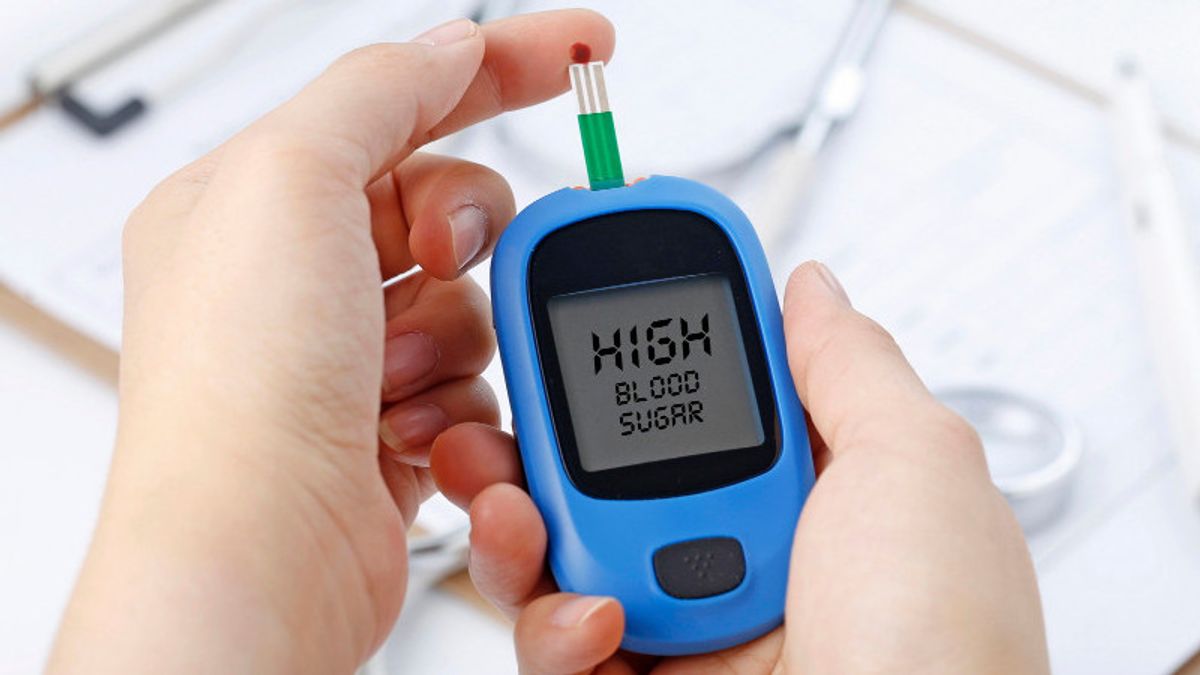YOGYAKARTA High blood sugar experienced by diabetics, both type 1 and type 2, affects all body performance. Including influencing organs that work for the body's system. If you don't start to immediately control blood sugar, then the effect on the organs as explained below.
The heart works to pump blood that brings oxygen and nutrients to tissue and other organs of the body. Blood vessels are interrelated with these tasks, including tasked with removing carbon dioxide, poison, and waste. According to the American Heart Association, reported by VerywellHealth, Wednesday, August 2, diabetes is one of the seven main risk factors in cardiovascular disease. Cardiovascular disease includes all types of heart disease, stroke, and blood vessel disease.
A person with diabetes, has a higher risk of developingapor arteries because it can cause platelet problems, cells that help blood clots. If you are suffering from diabetes, you can also form plaques that break out more easily and block blood flow. People with diabetes are twice as likely to develop cardiovascular disease than people without diabetes.
Kidneys are peanut-shaped organs located below the ribs and spine side. Each kidney is the size of a fist and regulates a number of systems. Including bringing urine from the kidney to the bladder and then removing it via uretra. The kidneys work as a filtration system, removing waste, extra fluids, and acid from the body.
Healthy kidneys help maintain a balance of water, salt, and minerals in the blood. The kidneys also produce vitamin D and arythropoietin, which vitamin D helps absorb calcium and improve the immune system. Meanwhile, erythropoietin, a hormone that stimulates the production of red blood cells.
Over time, high blood sugar caused by diabetes can damage kidney blood vessels. This can damage the body's ability to clean and dispose of waste piles and fluids in the blood. Types of kidney disease related to diabetes, called diabetic nephropathy, which if not treated immediately can be life-threatening.
High blood sugar affects cognition, especially mind and memory. Research shows that diabetes can change brain structure. Therefore, diabetics are at higher risk of cognitive decline and 50 percent more likely to experience dementia compared to those who do not suffer from diabetes. In addition, diabetes can also damage small blood vessels in the brain that cause stroke or brain tissue death.
Blood sugar in diabetics must be controlled. The reason is, if not, it can reduce the function of the lungs. This can cause mild complications, such as asthma or worse, lung fibrosis.
Several studies have shown that drugs that treat low blood sugar can cause lung disease in diabetics. One finds that different drugs can affect the lungs in different ways. For example, diabetes Glucophage (metformin) drugs that are commonly thought to work against lung disease, while insulin can worsen lung disease.
Diabetes is closely related to the pancreas, because the pancreas is an organ that produces insulin. Blood sugar is high, it can occur when the pancreas does not produce enough insulin. For type 1, diabetes lacks insulin production while type 2 diabetes, due to insulin resistance. These two causes burden the pancreas because it is triggered to produce more insulin than usual. People with type 2 diabetes, are at higher risk of developing pancreatic cancer.
Damage to the blood circulation system can lead to decreased blood flow. Along with these problems, the ability to send a damaged signal can disrupt blood flow to the penis and cause erectile dysfunction in men with diabetes. sperm's health also relies on the ability of your body to process glucose. When you have diabetes, this ability is disturbed, which can cause sperm's health to become poor.
اقرأ أيضا:
Not only in men, women with diabetes also experience fertility problems due to damage to blood vessels and dryness in the vagina. In women without diabetes, insulin helps encourage hormone production that maintains reproductive tissue and regulates ovulation. If you suffer from diabetes, this process also doesn't go well.
When you have uncontrolled diabetes, you have a higher risk of having problems with the organs as mentioned above. In addition, uncontrolled blood sugar also affects the eyes, skin, mouth, and teeth.
The English, Chinese, Japanese, Arabic, and French versions are automatically generated by the AI. So there may still be inaccuracies in translating, please always see Indonesian as our main language. (system supported by DigitalSiber.id)


















